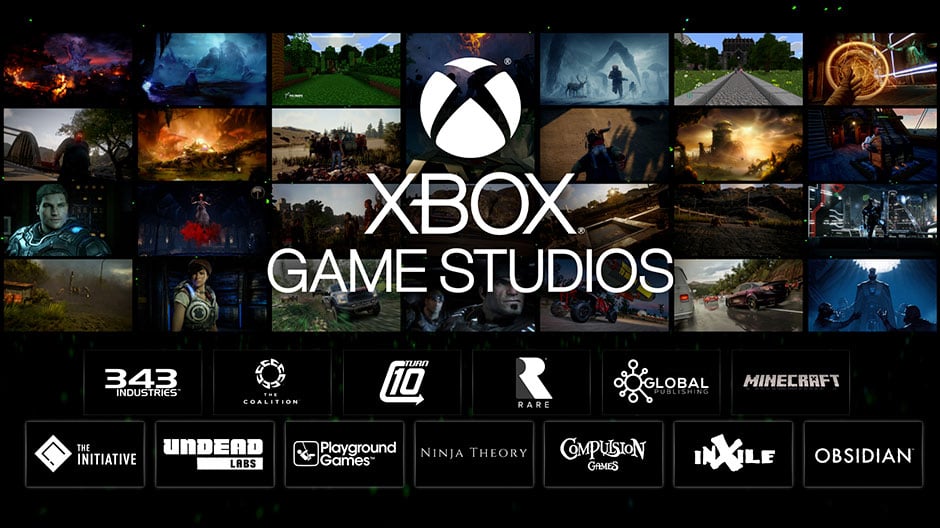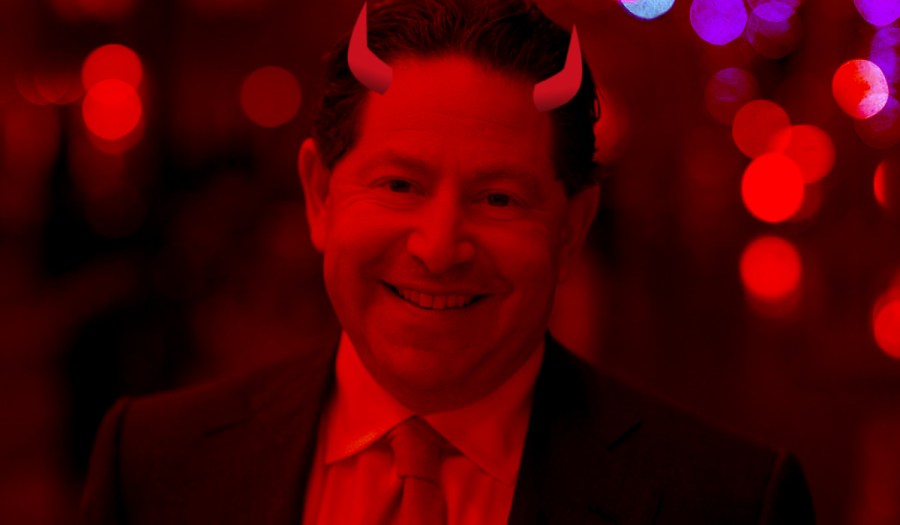The biggest lie corporations have tried to push down the throats of the general public is that mergers and less competition are good for everyone. Nowhere is this more evident than the potential biggest deal in gaming history: the merger of gaming giants Microsoft and Activision-Blizzard. With the recent news that the US Federal Trade Commission is suspending its case against the merger after an injunction was denied by a California court (where the judge just happens to have a son working at Microsoft and specifically altered the criteria for assessing antitrust suits), social media and comment sections have been taking the opportunity to proclaim this deal finished and celebrate that the government is getting out of the way of their precious video games. But why are we celebrating when we’ve repeatedly seen that mergers are bad for everyone except the corporations themselves?
As The Mary Sue has reported time and time again, the only guaranteed results of a corporate merger are people losing their jobs, artists being cheated out of their own work, and markets being phased out entirely. We’re seeing this in real time with the Warner Bros. Discovery merger, where movies and shows are being removed from the Max platform as tax write-offs, with the creators of these shows not even being told in many cases. Whether or not a corporation has an outright monopoly on an entire industry doesn’t mean it can’t have ridiculous amounts of power over that industry, and the deal between Microsoft and Activision-Blizzard is no different here.
We live in a time where, across the board, corporate consolidation has led to 1% of companies holding anywhere from 87 to a whopping 97% of corporate assets in an industry. In 2018, the Open Markets Institute published its Concentration Crisis report highlighting over 50 different industries and marketing that are struggling under monopoly power. AND most importantly, in the games industry, reports from Gamesindustry.biz and research outlet Newzoo for 2021 highlight that ten game companies made up 65% of the global game market combined. As Newzoo rightfully points out in relation to the merger here, “if Microsoft had already owned Call of Duty maker Activision Blizzard, it would be the second highest earning public company for 2021.” Hell, if Microsoft had their way, they wouldn’t just add Activision-Blizzard to their collection, they would be buying Sega, Bungie, Zynga, and Io Interactive on top of that. And those are just the proposed mergers we know about.

To be clear, this is an indictment of corporate capitalism as a whole in the games industry, and what we’re seeing today with Microsoft and Activision-Blizzard is just the most recent example we might actually have a chance to prevent. Going back to that referenced statistic from Newzoo, there are 8 other companies on that list that are still controlling a massive portion of the worldwide sales in games, which includes Microsoft’s alleged rival in console development, Sony at #2. In response to critiques of the Microsoft buyout, many fans have pointed to Sony as an example of a company that has just as much power, if not more so, in the gaming space that’s also had harmful effects on the games industry. And to that, I would say: Yes, that’s exactly right! A class action lawsuit is ongoing over the monopoly that Sony has over the exclusivity restrictions of its PlayStation digital store, and that deserves just as much scrutiny as what’s happening with Microsoft right now.
We do need to regulate them both. As with every company on the top 10 list here, the point is to stop any one company from having an unreasonable amount of control over the games industry. Between other names like Apple, Google, and Nintendo that are all seeing their fair share of antitrust concerns, it becomes that much more important for any further consolidation to be cut off where it can. Big tech companies like Apple and Google are directly funding the Congressional representatives and advocacy groups that are going after FTC chair Lina Khan right now for daring to try and oppose huge corporate mergers right now! And Sony Interactive CEO Jim Ryan has stated outright that we can expect to see “more acquisitions” as time goes on, the chance for corporations to acquire more power and control will always be taken if they have the chance.
Even if you don’t think that this can affect you, I promise you, it will. The aftershocks of corporate consolidation are being seen in overpricing, fewer choices, and worse products. Just looking around at the lack of options for Internet providers in the US is proof of that in itself. Much of the case surrounding the Microsoft and Activision-Blizzard merger is the FTC’s claim that Microsoft will use this as an opportunity to keep the popular Call of Duty franchise exclusive to Microsoft platforms and create an unfair advantage as a result. And while Microsoft has gone on record saying they won’t do this, even signing an agreement with Sony to keep the series on multiple platforms for 10 years, we’ve seen firsthand that when corporations have their financial interests threatened: they lie!
Just looking at the nightmare that is the Ticketmaster Taylor Swift fiasco shows that as soon as regulators aren’t looking, corporations will simply do what they were going to do anyway! And maybe pay a fine in the process, while still holding power over consumers like they had planned. And the FTC knows this, citing in their arguments the exclusivity Microsoft has exerted after their takeover of Bethesda parent company, Zenimax. With the deadline for the deal to purchase Activision-Blizzard pushed to October, the FTC does have an opportunity to refile against Microsoft here, and I really hope they do. I haven’t even begun to get into the mess that is Activision-Blizzard itself and CEO Bobby Kotick, who could also just as easily take back his claim about leaving the company after the merger goes through. Just like he claimed he knew nothing about misconduct allegations at the company while reportedly threatening to kill an assistant.

It’s far past time we stop treating the buyout of video game companies as an inevitability or a thing to be excited about. Taking a glance at other reporting on the FTC trial, it’s common to find other questions along the lines of “Who else should Microsoft buy if the deal doesn’t go through?” or “Who should Microsoft buy next?” as if it’s a fun thing to speculate over who will lose in the aftermath of a merger. Experts have gone on record saying that the increasing consolidation of markets is hurting innovation and driving up prices as a whole. This is by no means an easy battle but it all starts with a collective understanding that what’s good for the CEO is not good for everyone else. And if there’s anything I know about most players, it’s that we like a good challenge.
(featured image: Wikipedia/Microsoft/edits by the author)










Published: Jul 27, 2023 02:27 pm